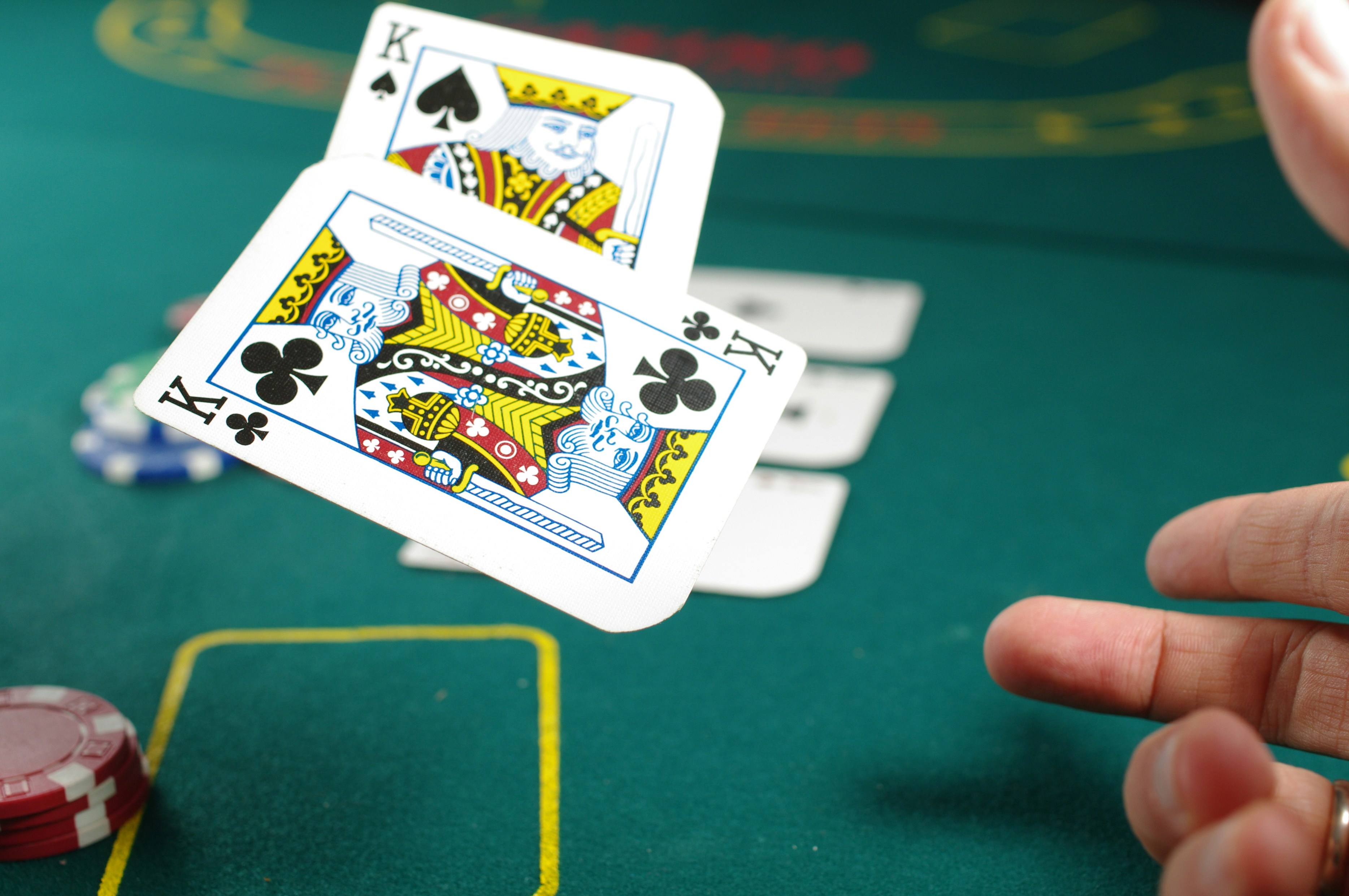Basic Rules of Poker - Most Simple Guides for Beginner
Poker, a timeless card game, has captivated players worldwide for generations. To embark on your poker journey, understanding the game's basic rules is essential. In this article, we'll explore the fundamental rules of poker, equipping you with the knowledge to confidently participate in games with friends, at casinos, or online.
From hand rankings to betting structures, let's unravel the core principles that make poker a thrilling blend of skill, strategy, and luck.
How to Win at Poker for Beginners

The goal of any game is to win. For poker, your opponent is not the casino, instead, you have to beat other players by owning the strongest hand in the table to win the pot. Although poker has many different variations, what they all have in common is that you must combine the 2 cards you hold with the 5 community cards to create the strongest 5-card combo.
Winning in poker depends a lot on the player's acting ability. You must find ways to bluff your opponents and keep your hand strength a secret.
If you successfully trick your opponent, you will reduce your losses if your poker hand is too weak, and increase your winnings if your poker hand is the strongest among all other players.
If everything sounds rather vague, read the next section of the article for a better understanding.
Common Definitions of Most Poker Rules

As is being said, poker is a game with a bunch of different variations. That's why you have to know the rules of the variation you're playing in order to hope to win. If you are a beginner, it is better to go through the common rules used in most different versions of this global casino game.
The Value of Poker Hands
The most important factor that determines a poker player's hand strength is the hand ranking system. This system highlights the value of the hand the poker player owns. That way, you'll know which hands you can hit and which hands you want. In poker, your hand can range from the high card (the weakness) to royal flush (the strongest).
The poker hand rankings will be described in detail below.
| Hand Names | Example | Hand Description |
| Royal Flush | 10♥ J♥ Q♥ K♥ A♥ | 10, Jack, Queen, King, Ace all in the same suit. |
| Straight Flush | 7♦ 6♦ 5♦ 4♦ 3♦ | Five cards in a row, all in the same suit. |
| Four-Of-A-Kind | 6♥ 6♦ 6♣ 6♠ 8♠ | The same card in each of the four suits. |
| Full House | Q♥ Q♦ Q♣ 4♥ 4♠ | The same card in each of the four suits. |
| Flush | 3♥ 5♥ 8♥ 10♥ K♥ | Five cards, all in one suit, but not in numerical order. |
| Straight | 7♥ 6♦ 5♣ 4♥ 3♠ | Five cards in numerical order, regardless of their suits. |
| Three-Of-A-Kind | 5♥ 5♦ 5♣ 6♥ 8♠ | Three of one card and two non-paired cards. |
| Two Pairs | 7♥ 7♦ 5♣ 5♥ 3♠ | Two different pairings or sets of the same card in one hand. |
| One Pair | 9♥ 9♦ 5♣ 4♥ A♠ | One pairing of the same card. |
| High Card | 10♥ 8♦ 5♣ 2♥ A♠ | No matching cards. |
As you can see, the strongest combination in poker is the royal flush, followed by straight flush and four-of-a-kind, etc. Finally, if your hand has no matching cards, it's the weakest possible hand. In this case, the strength of the hand will depend on the highest value of the 7 cards (two of your holding cards and 5 community cards).
Although the poker hand rankings above hold true for most variations of poker, there are a few other versions that apply different conditions. For example, in a razz or deuce-to-seven triple draw game, the chart above is still used, but in reverse order. The high card is the strongest hand in these games, and the royal flush is considered the weakest.
Blinds and Ante Bets
Small and huge blinds are used in games like Hold'em and Omaha because they are "blind" wagers that players must make before they are dealt any cards. Meanwhile, "antes" are commonly used in stud games, which entail players placing chips in the middle before the hand begins.
As the hand proceeds, participants wager more, resulting in greater pots. That is the purpose of this playing strategy. To better understand them, we will analyze them later in this article.
Limit vs. No-Limit Poker Games
Some poker games have no-limit betting, which implies that players can wager as much as they want at any time throughout the game, even going "all in," meaning the player wager all the chips they have.
Pot-limit betting implies that the current size of the pot determines the maximum amount a player may wager. Therefore, the player can only Call (wagering an amount equal to the amount the previous player bet), or Fold (discarding the card, not continuing the game, and accepting the loss of your previous bet amount). The action of Raise (wagering more by matching the previous player's bet and putting in a greater amount) is not allowed if the previous player’s bet had reached the limit.
Fixed-limit betting games contain predefined sums from which players cannot deviate while placing bets and raising their stakes. So, the wager for each player is set at the beginning of the game and can not be varied.
The Betting Rounds
Rounds in a regular poker game include
Pre-Flop: Before any community cards are dealt, players can wager an arbitrary amount. It's called the Pre-Flob.
Flob: The first three communal cards dealt are known as the "flop." All surviving players can utilize these communal cards to form the finest poker hand possible. The game proceeds with another round of betting. The first player still in the hand, to the left of the dealer button, initiates the action.
Turn: After the round of betting on the flop is completed, another communal card, known as the turn, is dealt. Active players have two hole cards and four community cards to try to construct the greatest five-card hand.
Then, another round of betting is underway. The action begins once more with the first remaining player seated to the left of the dealer. Play always proceeds counterclockwise. The betting round concludes after all remaining players have acted.
River: When the Turn betting round is over, the 5th community card is also the last card to be revealed to the center of the table. This is the last hope for those who have not created good links in previous rounds. At this point, the post is finished. You will combine your two cards with the five community cards on the table to create the strongest 5-card link possible. Then, the final betting round takes place.
Showdown: If there are two or more players left after the last betting round, everyone will flip their cards. The individual with the stronger poker hand is declared the winner. And that individual is the sole owner of the entire pot of money.
The Table Stakes
Another poker regulation that applies to almost every one of its versions, whether you play live poker or online poker, is table stakes. This poker term implies that once a hand begins, you may only wager the amount you have on the table at the start of the hand and are not permitted to contribute anything further during the hand as it progresses. Thus, it prohibits richer players from wagering more than what is in other players' affordable stacks.
Prior to the rule's implementation, players with lesser bankrolls were at a disadvantage. A wealthier player may physically elect to toss a large sum of money into the pot, proclaiming a boost in the worth of his fortune. Of course, a poorer player may be unable to afford to call such a raise and will be forced to fold, handing the pot to the richer player.
Dealer Button and Blinds
In most games, a dedicated dealer aids the dealing. On the opposite site of the spectrum, it is not commonplace for players to rotate the deal among themselves in home poker games.
If there is a professional casino dealer, a button shows who has the deal. Following each hand, that button shifts one position clockwise. The button's purpose is to specify where the players' actions should begin each time. The action always begins with the first person to the left of the button.
The player to the immediate left of the button must post (pay) the small blind before any cards are played. The player to his left must place the big blind, which is double.
These "blinds" are forced bets that assist players in having something to chase after. Consider this: If there were no blinds in poker, no one would ever "blind off." They would never lose chips by folding preflop all the time. Moreover, players would wait until they were dealt Aces before going all-in. This could ruin the game.
Tournaments vs Cash Games
When you play poker against other people, you do it in one of two formats: tournament or cash game, and each has its own set of poker regulations. Although the fundamentals are the same, there are four key variances. They will be described below.
Blinds: The blinds in cash games are always fixed and never increase. In tournaments, the blinds increase after a specific amount of time, depending on the blind structure. They use this to compel activity and guarantee that the competition concludes on schedule.
Duration: Cash games are handy since you will have a comfortable time to decide your action. On the other hand, tournaments are formal. The game continues until a winner is proclaimed and players can't spend too much time on their actions.
Chips: Each chip in a cash game has a denomination that corresponds to its real-money value. Chip denominations in tournaments are often not worth actual money. For example, a $100 investment for a poker tournament can exchange you 10,000 chips.
Antes: Antes are similar to blinds in that they are forced wagers taken from players prior to the start of a hand. They are most popular in tournaments, but they do appear in cash games on occasion. Unlike the blinds, they do not contribute to the money wagered in the initial (preflop) round of betting.
Variants of Poker
As mentioned, poker is a global game because of the primal appeal of 5-card combinations. That is the main reason that it is loved around the world, thereby creating many different variations in the game.
Among the variations, the most popular one is Texas Hold'em. Gamblers can play it at virtually all land-based and online casinos worldwide. In addition, it is also simple enough that you can play it with family and friends right at home.
Although Texas Hold'em is the most popular, other variations of the game are also growing in popularity. You may have heard of games like Pot-Limit Omaha, 2-7 Triple Draw or Short Deck Hold'em at the casinos you join. They are versions with a few different rules than poker, but still retain the most basic elements so that any Texas Hold'em player can get used to them.
Here are some other poker variations: Pot-Limit Omaha, Omaha Hi/Lo, Razz, 2-7 Triple Draw, Badugi, Short Deck Hold'em, and Pineapple & Crazy Pineapple. If you want to know more about them, our website offers an in-depth guide to these poker variations. Read on and explore the diverse world of poker.
Read more: What is Poker GTO? Full Explanation from Experts
Conclusion
Today's article has covered the basics of poker for beginners and the common features of the different variations of this exciting casino game. Hope this information will be useful to you. Also, if you are wondering about the effective playing strategy of any other casino game, we have experts who can give you valuable advice to get you started on your journey to the world of gambling in a smarter and safer way.
















